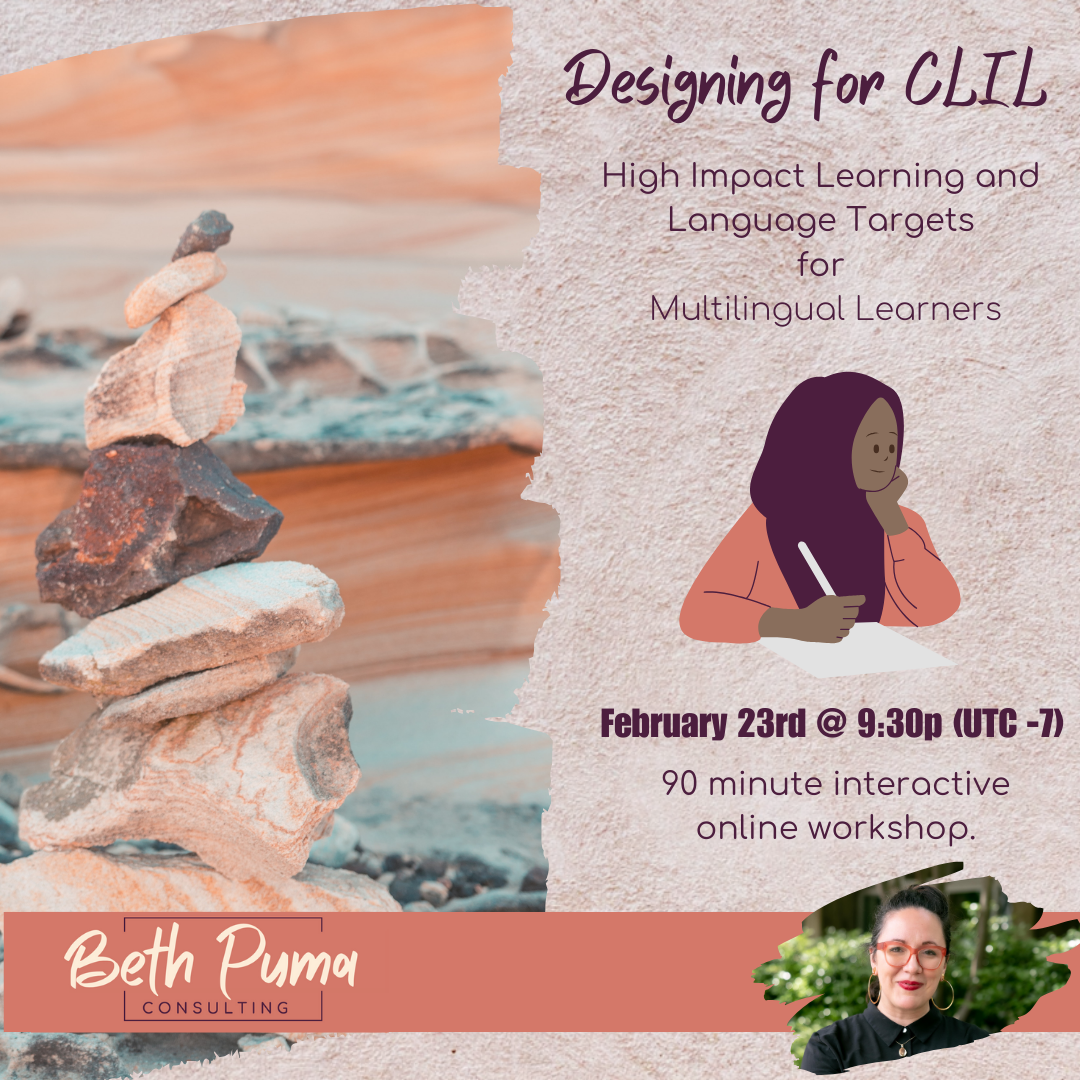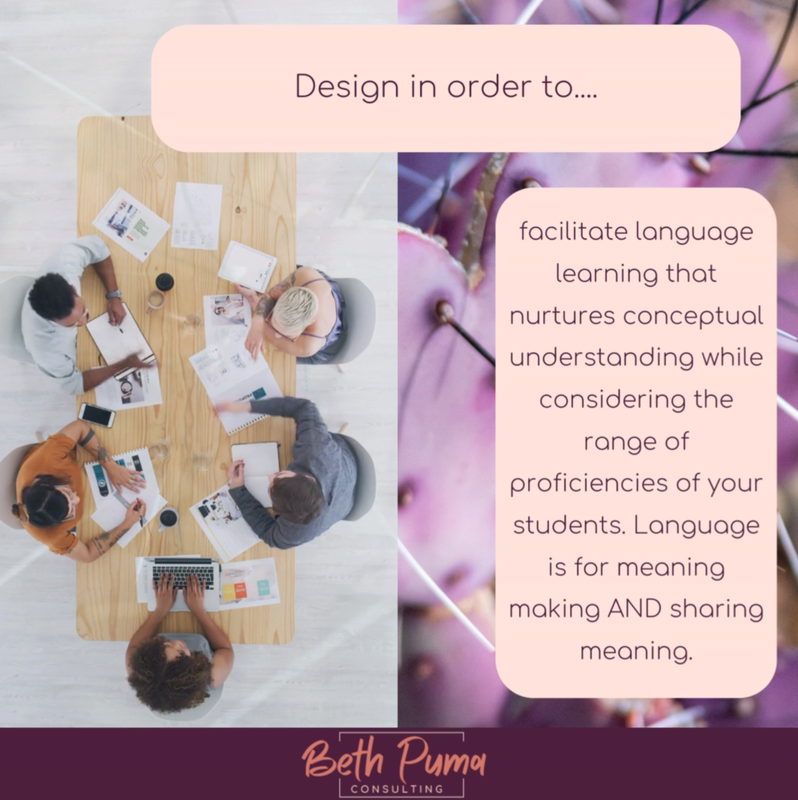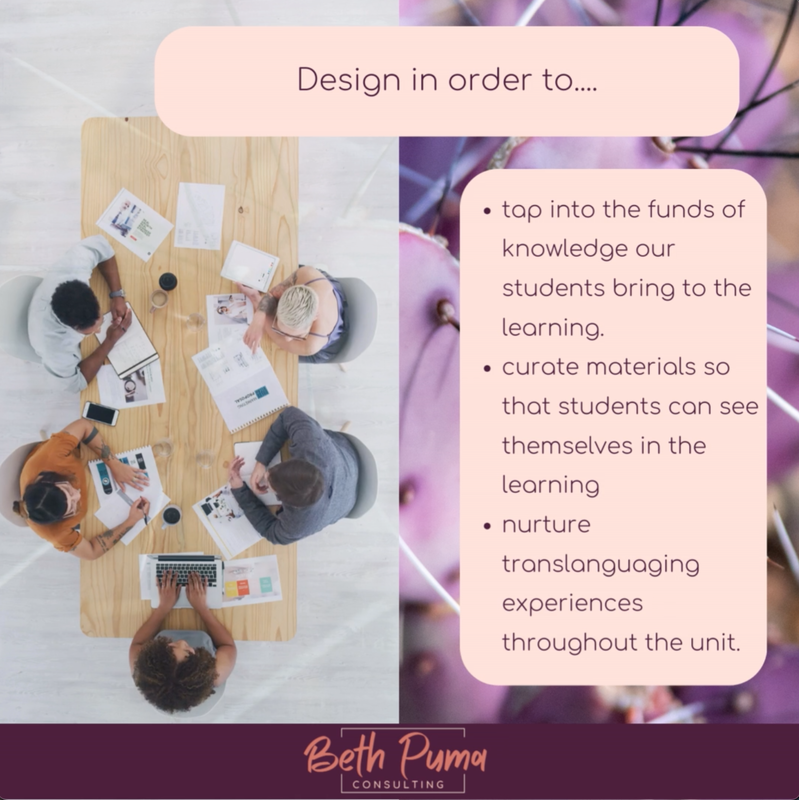|
As educators, we have all heard the statement "every teacher is a language teacher" but what does that really mean? How do we shift that statement from a set of buzzwords to a deeply ingrained value that truly serves multilingual learners? One of the ways to fulfill the promise "every teacher is a language teacher" is through content and language integrated learning (CLIL). One of the critical elements of CLIL is robust, strategic learning and language targets to drive student learning. This event will unpack how to write them to guide instructional planning and student learning. Register today by heading on over to EventBrite.
0 Comments
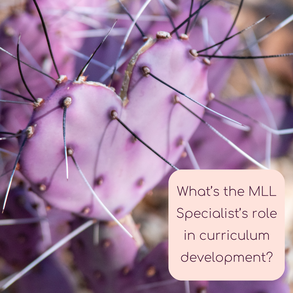 I know an a lot of MLL Specialists that are reluctant to attend or contribute to curriculum focused team meetings. I even know a few that throw their hands up with exasperation saying "they are a waste of my time." Yet, a strong curriculum is so crucial to strong instruction. A strong curriculum helps our multilingual students immensely. while making co-planning meetings more efficient. Curriculum is one of the key components of the multilingual ecosystem that we discuss in my professional learning workshops. Schools with a strong commitment to equity and their multilingual learners ensure collaboration time is embedded in their timetables for teaching teams and MLL specialists. Why is it then, that so many MLL Specialists experience reluctance, exasperation, or even trepidation when it comes to sitting down with colleagues for the unit design process? That's a question I often explore in coaching, since the answer(s) can be complex and contextualized. For now in this blog post I will share what I believe our role is at the table and possible ways to engage with questions. 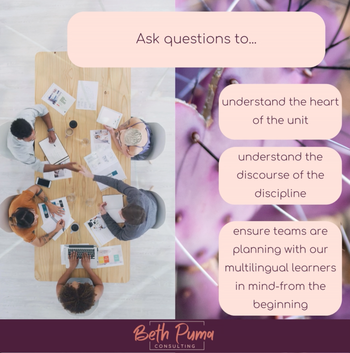 Participating in curricular meetings is important for MLL specialists to seek to understand the grade level content. They do not need to be content area experts of course, nor should they be expected to. Curricular meetings are a good time to ask questions to seek to understand in order to aid the design process with a clear eye on the horizon. Its a great time to ask questions like:
We immerse our learners in language rich classrooms, but remember part of the MLL Specialists job is to facilitate language learning. I find this is something, when done right, that all students benefit from.
As MLL Specialists we have a deep commitment to linguistic equity. We have a deep understanding of bilingualism and the role culture and identity play in our students lives. We can offer contributions to the unit to ensure that our students are seen and see others like them while nurturing their multilingual identity.
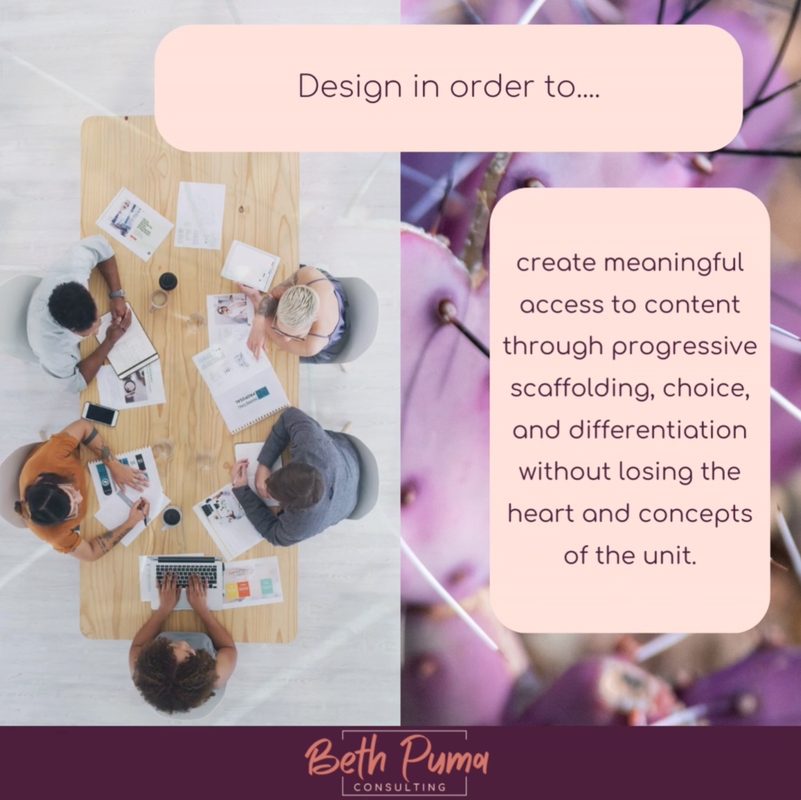 Creating access is an important role that many MLL specialists play at the curricular table. Just be careful! This isn't the only role. Questions we can ask of ourselves and design for include:
MLL Specialists are important participants in curricular design.Questions can be a quiet way of leading collaborative unit design conversations towards equity for our multilingual learners. Asking questions (even if answers aren't available...yet) also help develop a sense of collective efficacy around all of our students' success. Asking questions helps chip away at deficit mindsets without being preachy. It also pushes MLL specialists beyond the "magic trick -here's strategies" mode that many of us can fall into.
Go forth and be brave MLL Specialists! Your colleagues depend on you for your insights. Your multilingual students are counting on you. If you are interested in exploring these ideas more and incorporating them into your practice reach out to schedule a coaching call today. |
Beth PumaI am an MLL specialist, coach, and educational consultant that is dedicated to building a more transformative educational landscape that honors linguistic diversity and challenges societal paradigms. Archives
July 2024
Categories
All
|

